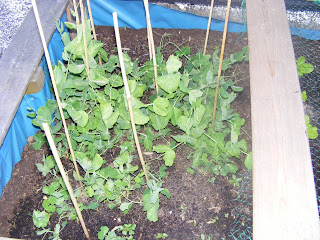Interested in Organic Gardening? Consider These 10 Tips
Imagine providing your family with food that you know is healthy, because you grew it yourself without the help of chemicals. With organic gardening this is possible. Organic gardening involves using natural pest control and fertilizers to grow flowers, vegetables, and fruits, rather than commercially produced and environmentally hazardous pesticides and fertilizers. If you are interested in organic gardening, consider these ten tips.
Tip 1 - Use Natural Pest Control
Your garden is going to have pests. Once you have identified them, research natural controllers you could add to the garden. These natural controllers could be other insects, such as ladybugs to control an aphid population, or plants, such as garlic to prevent armyworms or apple maggots.
Tip 2 - Rotate Plants Regularly
Rotating your plant sites will keep them healthy and also help control some pest populations. When you rotate your plants, the soil has a chance to recoup. Each plant takes different nutrients from the soil, and some even return nutrients to the soil. Properly rotating your plants each year will keep your entire garden healthy.
Tip 3 - Prune Plants Carefully
Remove any dead parts you find on your plants. They are not going to heal, and they will cause the plant to become diseased. Do not leave them on the ground near the plant, either. Remove them from the garden and destroy them right away.
Tip 4 - Make Good Compost
Compost is the best way to feed your organic garden. Compost is not difficult to make. Simply layer leaves, lawn clippings, and organic kitchen waste in your compost heap. If you need to get the compost started quickly, you can add a compost starter to the mix. Keep in mind that the good compose is at the bottom of the pile, so you will need to have a way to turn it or access the pile from the bottom. Once you have a nice amount of compost, work it into your soil to create rich organic soil.
Tip 5 - Air Your Compost Pile
Compost needs air to properly decompose. You can add air by turning the compost pile regularly. You can also provide the pile with air by putting a PVC pipe into it in the center of the pile. Also, build the pile on a layer of branches and sticks to provide some air from the bottom.
Tip 6 - Choose Organic Fertilizers
Organic fertilizer will help your plants grow bigger and healthier. This is particularly important if you are growing food. Choose a low-dose fertilizer, however, because they will not burn the roots of your plants or provide too much of any particular nutrient.
Tip 7 - Purchase Organic Seeds
Since seeds come from plants, the only way to have a truly organic garden is to buy organic seeds. You cannot sell your produce as USDA certified organic if you do not use organic seeds. Organic seeds must come from open pollinated or hybrid plants. Seeds from non-organic plants have been exposed to pesticides and other chemicals, so they may not grow properly.
Tip 8 - Test Your Soil
Your soil is not going to contain all of the nutrients your plants need. Test it to determine what nutrients are missing. Then, alter your fertilizer and compost materials to provide the missing nutrients to the soil.
Tip 9 - Water Carefully
The soil in your garden needs to feel moist, but over-watering can lead to disease and strip nutrients out of the soil. Typically, plants need an inch of water per week. You can keep a rain gauge in the garden to help you determine how much water it needs.
Tip 10 - Intercrop
Intercropping, which refers to growing one crop in between rows of another crop, is an important organic gardening technique. Planting herbs and flowers, such as mint or marigolds, in between your vegetables will keep some pests away. Also, intercropping improves the soil nutrient levels.
About the Author
Organic gardening store features organic tips and solutions to common garden problems. Find indoor plant ideas at Redenta's Garden.


Comments